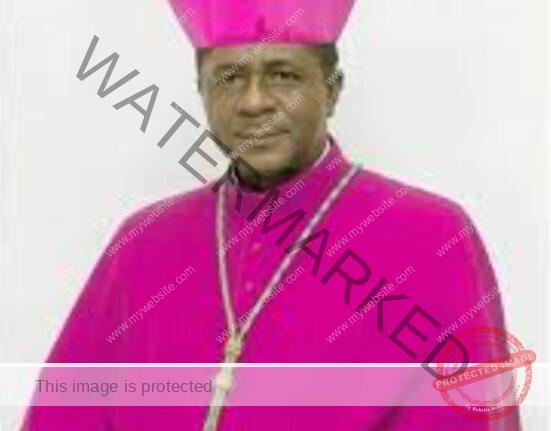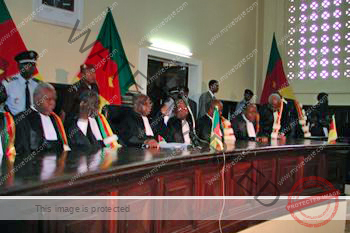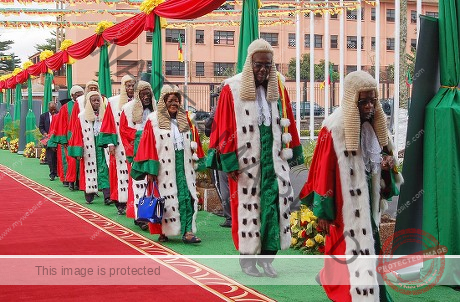By Young Jean-Pierre | Investigative Correspondent
Yaoundé, September 2009 — A Secret Cable, A Silent Alarm
In a confidential diplomatic cable leaked by WikiLeaks, the French Embassy in Yaoundé painted a grim and clear-eyed picture of Cameroon’s deteriorating political architecture and the silent storm brewing in its English-speaking regions.
The cable, marked “Confidential” and transmitted under the title “Cameroon’s Complicated Relationship with France”, provides rare insight into France’s private assessment of its former colony—and reveals a knowing complicity in a regime now associated with systemic repression, elite corruption, and war.
The revelations, which remained classified until WikiLeaks released the cable in 2010, are both damning and prophetic.
Colonial Bonds, Corrupt Dividends
The French mission in Yaoundé described Cameroon’s political class as one “educated, groomed, and bound” to France through a matrix of schools, commercial networks, and diplomatic patronage. These ties, while reinforcing France’s post-colonial grip on Central Africa, had created an elite culture of impunity, especially within President Paul Biya’s circle.
In what now reads like a eulogy for diplomatic neutrality, the cable admitted that France’s intimate proximity to Cameroon’s leadership had inadvertently enabled the very corruption it occasionally criticized.
“Elites in Yaoundé treat Paris less as a partner than as an extension of the regime,” the cable noted.
Indeed, French companies and consultants dominated major sectors, from oil and defense to infrastructure and telecommunications—often through opaque contracts and exclusive political alliances, rather than open bidding or civic accountability.
A Republic Divided: The Anglophone Warning
The most striking section of the cable addresses the growing unrest in Cameroon’s Anglophone regions—then still simmering beneath the surface.
The French Embassy, echoing concerns raised in private U.S. diplomatic communications that same year, described the alienation of English-speaking Cameroonians as an “increasingly volatile problem.” The cable acknowledged:
Chronic neglect of English-speaking provinces,
Exclusion from Francophone-led government structures, and
A sharp rise in anti-Yaoundé rhetoric, especially among the Anglophone intelligentsia.
“The risk,” the cable warned, “is not merely protest, but political rupture.”
More than a decade later, that rupture would erupt into a full-fledged separatist conflict—one that has displaced over a million people, drawn international concern, and cost thousands of lives.
French Silence, Foreign Complicity
Despite the gravity of the insights in this cable, France took no significant public action in response. There were no sanctions, no aid suspensions, and no public condemnations of Biya’s repressive response to peaceful Anglophone protests in 2016 and 2017.
Critics now argue that France’s strategic interest in Cameroon—anchored in natural resources, regional influence, and counter-terrorism logistics—was prioritized above human rights or long-term stability.
“France knew. And France chose to look away,” said Dr. Nathalie Njong, a political economist based in Douala. “This cable proves that Paris was aware of what was coming. Their silence helped pave the road to war.”
A Case Study in Post-Colonial Realpolitik
The cable’s significance lies not just in what it says, but in what it symbolizes: the dangerous inertia of post-colonial diplomacy. France had the leverage—and the responsibility—to pressure Biya’s regime toward democratic reform, equitable governance, and Anglophone inclusion. Instead, it opted to preserve its privileged access to power in Yaoundé.
The result? A deepening divide that exploded into a war France now claims to regret, but once helped to prevent—with inaction.
Conclusion: The Silence That Spoke Volumes
As the conflict in Ambazonia enters another bloody year, the 2009 French cable serves as a haunting reminder that diplomatic silence is not neutrality—it is endorsement.
What was once written behind closed doors in Yaoundé is now known to the world. But for millions of Cameroonians—especially those in the war-torn Northwest and Southwest—the consequences of that silence are no longer confidential.
Young Jean-Pierre is an investigative journalist focused on Francophone Africa, post-colonial governance, and international diplomacy. He writes for The Independentist news and other investigative platforms.





















Leave feedback about this